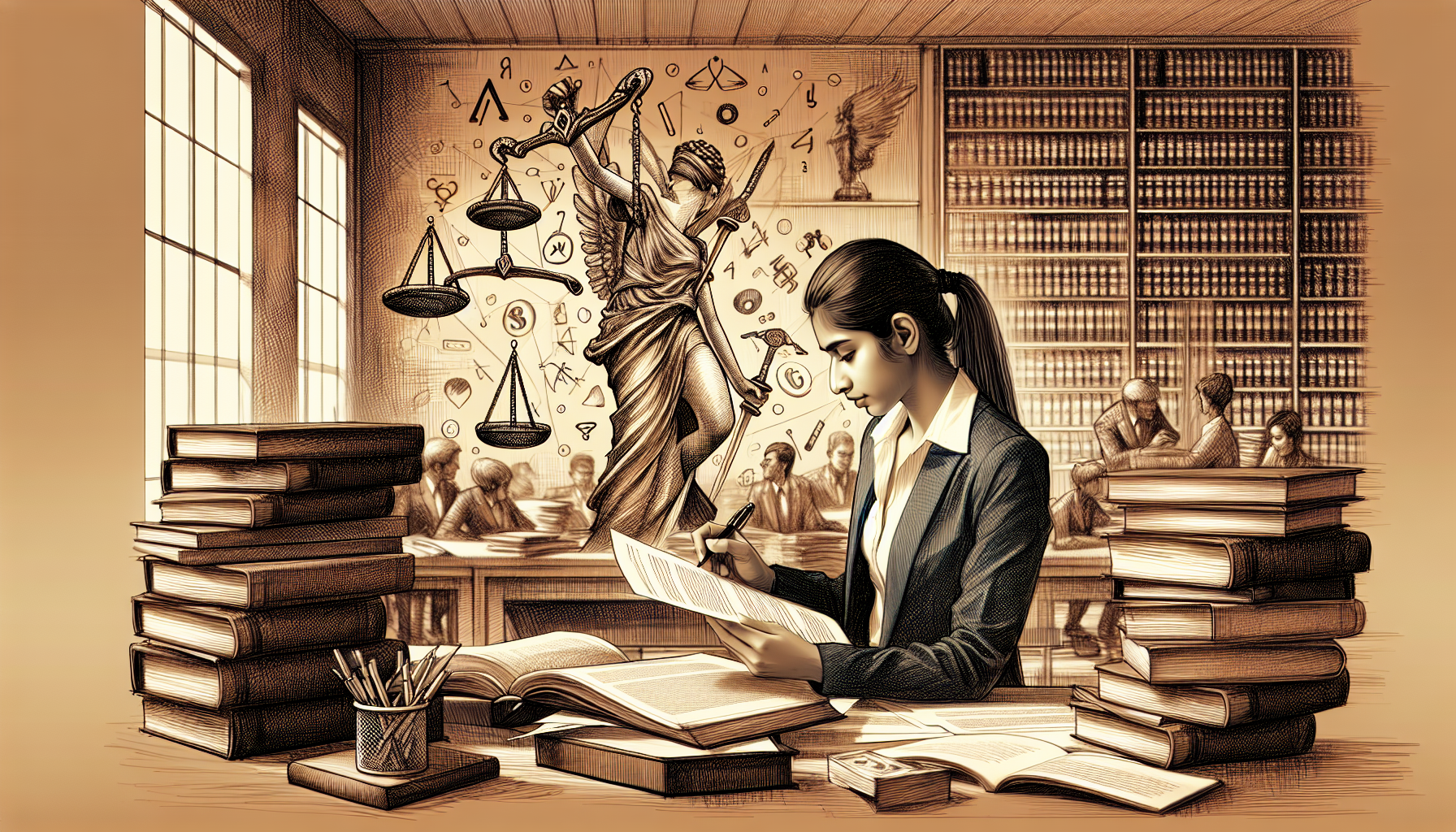
Unlocking Efficiency: The Role of Language Models in Family Law
In family law, precision is critical, particularly when listing assets and debts. Accurate documentation ensures fair distribution during divorce proceedings and aids in avoiding potential conflicts. The emergence of advanced AI, like ChatGPT, offers transformative capabilities within the legal sector. This article delves into the multifaceted role of ChatGPT in streamlining family law practices by enhancing the accuracy and efficiency of asset and debt listings.
ChatGPT, a powerful language model developed by OpenAI, is gaining traction for its ability to process natural language and assist in drafting, reviewing, and managing legal documents. The focus here will be on practical applications for family law practitioners, providing insights into how AI can optimize daily tasks and ultimately benefit clients.
Setting the Stage: Preparing Your Workspace for AI Integration
Before integrating AI such as ChatGPT into your practice, ensure you have the right tools and software. This involves a reliable computer system, stable internet connection, and access to ChatGPT via OpenAI’s platform or integrated legal software.
Initial setup should prioritize data security and confidentiality. This includes using encrypted communication channels and robust authentication mechanisms to protect sensitive client information. Proper preparation ensures a seamless transition to AI-enhanced workflows.
Also read:
Crafting the Perfect Prompts: The Art of Asking the Right Questions
Effective use of ChatGPT hinges on crafting precise and clear prompts. The right questions will yield the most useful and accurate responses. Understanding the nuances of prompting can significantly enhance the relevance of the AI outputs.
Examples of Prompts for Asset Listings:
- “List all marital assets, including real estate, vehicles, investment accounts, and personal property.”
- “Provide a detailed description for each listed asset, including current market value and ownership status.”
Examples of Prompts for Debt Listings:
- “Identify all outstanding debts, including mortgages, credit card balances, and personal loans.”
- “Detail the amount owed, interest rate, payment terms, and responsible party for each debt.”
Refining prompts based on responses ensures data accuracy. For example, if a response is vague, a follow-up prompt such as “Clarify the current balance and monthly payment for the specified credit card debt” can sharpen results. Properly crafted questions form the foundation for reliable AI-assisted legal documentation.
Also read:
Streamlining Data Entry: Automated Document Review and Extraction
With well-designed prompts, ChatGPT can automate tedious tasks of data entry and review. AI techniques allow for efficient extraction of pertinent data from extensive legal documents.
For instance, inputting a scanned divorce decree or financial statement into ChatGPT can help extract essential details, such as asset ownership and liability distributions, into a structured format. This method saves time and minimizes manual errors.
It’s crucial to organize extracted data systematically. Utilize spreadsheet software or legal management systems to catalog the information accurately, ensuring it is readily available for further legal review or client consultation.
Also read:
Ensuring Accuracy: Double-Checking AI-Generated Information
Accuracy in legal documentation cannot be compromised. Verifying ChatGPT-produced data is vital to maintaining integrity.
Cross-referencing AI-generated data with original documents and conducting manual reviews ensure discrepancies are spotted early. Additionally, employing secondary AI validation tools or consulting a colleague can provide an extra layer of accuracy.
Common pitfalls include over-reliance on AI without thorough verification, which can lead to omissions or misinterpretations. Vigilance is key to effective AI utilization.
Also read:
Time-Saving Templates: Pre-Formatted Legal Documents with AI
Leveraging ChatGPT to create pre-formatted legal templates can significantly streamline repetitive tasks. These templates serve as foundations for various legal documents.
AI can generate templates for common documents such as property settlement agreements, debt repayment plans, and prenuptial agreements. Examples of customizable prompts include:
- “Draft a standard property settlement agreement template, including clauses for asset division, spousal support, and child custody.”
- “Generate a debt repayment plan template addressing joint liabilities and individual debts post-divorce.”
These templates can be tailored to cater to specific cases by inputting unique client data and requirements. By capitalizing on AI-generated templates, legal professionals can save precious time and enhance document consistency.
Also read:
Ethical and Confidentiality Considerations
Using AI in legal work introduces ethical and confidentiality challenges. Maintaining client confidentiality is paramount.
Ensure all data processed through AI tools is securely handled, with stringent access controls and encryption protocols. Ethical considerations also extend to the transparency of AI use, where clients should be informed of AI involvement in their case management.
Also read:
Future Horizons: Emerging Trends and Tools in Legal AI
The landscape of legal AI is rapidly evolving, with new advancements on the horizon. Emerging tools promise to offer even more sophisticated data processing, predictive analytics, and deeper integration into legal workflows.
Future developments may include enhanced natural language understanding models and AI-driven legal research platforms. These innovations hold the potential to revolutionize the practice of law further, making legal services more efficient and accessible.
Also read:
Wrapping It Up: Final Thoughts and Best Practices
To conclude, the integration of ChatGPT into family law practices offers substantial benefits in efficiency, accuracy, and time management. Key takeaways for leveraging AI include mastering the art of effective prompting, thorough verification of AI outputs, and upholding ethical standards in AI usage.
Continued learning and adaptation are essential for staying ahead in the evolving field of legal AI. Embrace these tools with caution and commitment to best practices, and witness the transformation AI can bring to your legal endeavors.


